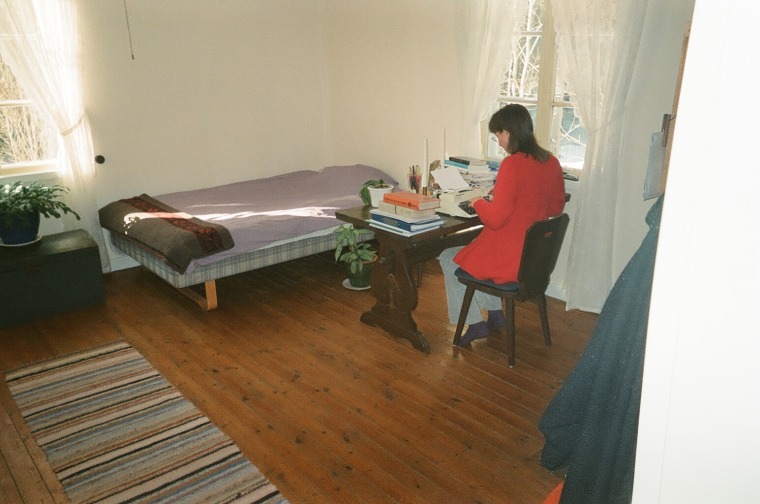Much of modern life — the buzzing of cell phones, the humming of laptops, the ubiquity of wifi — is enough to give anyone a headache. But what if electromagnetic waves really did make you sick?
For people who call themselves "electrosensitive," life in our plugged-in world is becoming increasingly unbearable. As they define it, electrosensitivity syndrome is characterized by headaches, rashes, nausea, fatigue and even fainting when sufferers come too close to electromagnetic radiation.
Although electrosensitivity is not recognized as a medical diagnosis, it's a condition those in Europe are especially concerned about — in fact, earlier this month, leaders from the Council of Europe pushed to ban cell phones and wifi in schools, the Telegraph reported.
Most people who complain of electrosensitivity are only mildly bothered by electromagnetic waves, but some say the health affects are so severe that they're unable to live comfortably in a city.
To find more about the extreme end of this condition, TODAY took to the remote forests of Sweden, a country that recognizes electrosensitivity as a functional impairment.
That's where Bo and Sonja Fredburg live — in Varmland, a beautiful stretch of Swedish forests and frozen lakes, a refuge for a band of electrosenstive fugitives, beyond the reach of any cellular tower or wireless signal. The Fredburgs have been living without electricity — no TV, no radio, no refrigerator, no electric lights — for 10 years. The Fredburgs' only gadget is a 50-year-old telephone.

When visited by the TODAY team, the Fredburgs insisted the reporters remove the batteries from their cell phones and abandon the hi-definition camera they'd normally use. Instead, the team shot the segment with a 20-year-old VHS camera, which the Fredburgs say causes them less discomfort.
The couple said they immediately felt the health effects when the camera crew entered their home. "I get sort of shaky, and the heart gets effected," says Bo Fredburg. For Sonja Fredburg, "The most prominent thing is the burning sensation in the skin," she explains.
Susanne Jislson, a neighbor of the Fredburgs' who has lived in this remote area in Sweden for seven years, developed a rash on her neck midway through an interview with the TODAY team, something she says was caused by the camera's presence. Her only gizmo: an old-fashioned typewriter. Jislson believes that wifi triggered her symptoms. "I get headaches; I get really confused. I can't think straight. I get extremely tired," she says. "I was a very healthy person before I got these problems."
Still, many psychologists and neurologists believe that electrosensitivity symptoms are all in the mind. Elaine Fox, a psychology professor at the University of Essex, has studied people in the UK who believe they have the condition. She and her team wanted to see whether electrosensitive people could tell if a hidden cell phone antenna was turned on or off, using 50-minute exposure tests.
"What we found, overall, was actually that people couldn't tell above chance, so they were really ... just guessing, in terms of whether it was on or off," Fox told TODAY.
But some experts, like neuroscientist Olle Johansson of the Karolinska Institute in Stockholm, Sweden, contend that people like the Fredburgs aren't imagining their condition. Johansson investigates the health effects of electromagnetic fields on the body, and he told TODAY that he believes the long-term effects of exposure to electromagnetic radiation is worrisome.
"The long-term effects points to an association to things like brain cancer, leukemia, neurological diseases," Johansson says.
Back in the secluded Swedish forest, the monthly book bus provides a link to the outside world, and a chance for the electrosensitive to socialize with each other before retreating to their homes, where forests and frozen lakes serve as a stunning backdrop.
As Bo Fredburg describes their isolated existence, "It is a prison, but a beautiful prison."
For more stories like this one, "like" TODAY Health on Facebook, and follow Melissa Dahl on Twitter @melissadahl.